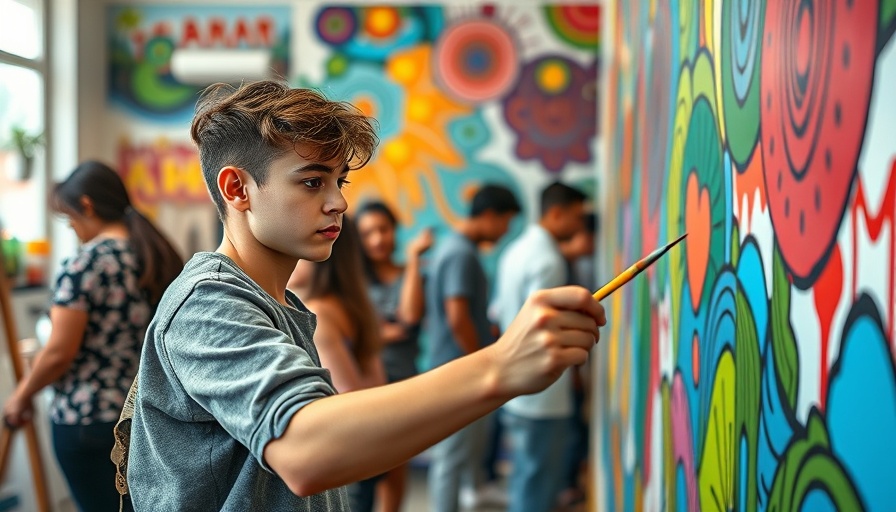
Celebrating Nelson Mandela's Legacy Through Creative Learning
In July, the vibrant Menlyn Maine in Pretoria transformed into a tribute celebrating Nelson Mandela's legacy during the Gallery of Giving event. The initiative spotlighted the creativity of students from Inscape, who partnered with renowned South African fashion designers to craft an exciting Mandela-themed selfie board. This interactive art displayed not just the students' skills but demonstrated how young creatives can effectively harness their talents for community impact.
Empowering Young Minds Through Practical Learning
The excitement was palpable as Inscape students engaged in a unique opportunity that combined art with life skills. Mignon Louw, Inscape's Head of Marketing, highlighted the project's importance in enabling students to explore mixed media and storytelling, emphasizing the crucial element of community engagement. Students stepped outside their comfort zones, utilizing basic materials to create a vibrant collage representing Mandela's spirit, showcasing their ability to solve problems and collaborate effectively.
Hands-On Learning: The Benefits of Real-World Experiences
This project was more than an artistic endeavor; it served as a practical learning experience that could shape students’ future careers. From managing a tight 48-hour deadline to collaborating with industry professionals like Anissa Mpungwe and Craig Jacobs, students developed essential skills in creative thinking and teamwork. “Working alongside these legends was a profound experience,” conveyed Tshwanelo Masote. The hands-on nature of this project cultivated not only artistic talent but also industry-relevant skills, preparing them for the competitive creative landscape.
Bringing Community and Creativity Together
The Gallery of Giving exemplified the intersection of creativity and social responsibility. Students were encouraged to engage freely with their ideas, resulting in a rich tapestry of colors and textures symbolizing community unity. Through this approach, Inscape demonstrated how creative projects could effectively address societal challenges, fostering an environment of exploration and innovation. Mignon noted that creating in a stress-free environment allowed students to take risks and fully express their creativity.
The Role of Creative Projects in Education
Projects like the Gallery of Giving hold vital importance in an evolving educational landscape that prioritizes creativity alongside academic achievement. In the context of curriculum reform, such initiatives reflect the shift towards problem-based and inquiry-based learning that develops 21st-century skills. This hands-on experience aligns with larger educational goals, such as improving STEM literacy and encouraging self-directed learning among students from diverse backgrounds.
The Path Forward: Future Directions in Education
As South Africa moves forward in its education strategy, projects like these can serve as a model for integrating practical learning into the curriculum. Within the framework of CAPS and recent national education policies, enhancing science and creative subjects through community engagement can better prepare students for future careers. The Gallery of Giving stands as a testament to the potential that exists when educational institutions collaborate with the community to enhance the learning experience.
Conclusion: The Ripple Effect of Creative Education
The success of the Gallery of Giving highlights the importance of creativity in education and the profound impact of community involvement. By continuing to prioritize such initiatives, we can foster a generation of students who not only possess academic knowledge but also the creativity to imagine innovative solutions to real-world problems.
 Add Row
Add Row  Add
Add 




Write A Comment